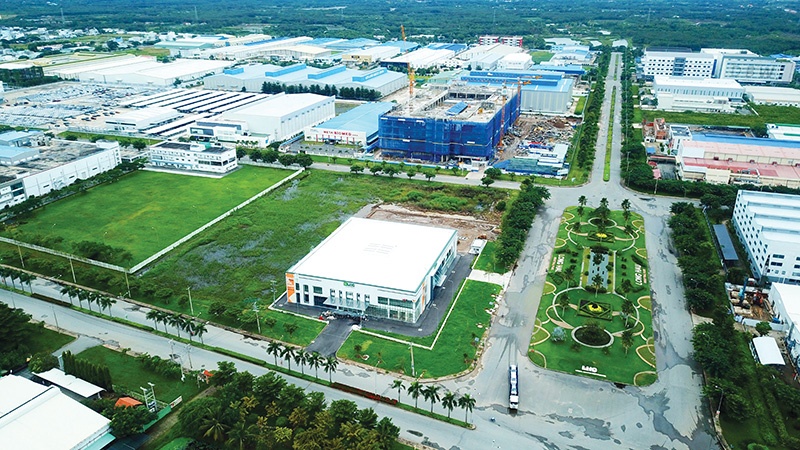INTERNATIONAL INVESTMENT
AND PORTAL
The growing competition among developing countries for foreign direct investment has revealed many of the disadvantages of Vietnamese industrial zones and the need to upgrade their facilities to attract more investors.
 Vietnam urged to stay ahead of the game in FDI attraction
Vietnam urged to stay ahead of the game in FDI attraction
According to Nguyen Thi Bich Ngoc, co-founder and CEO of Sen Vang Group, many industrial landlords’ systems are not qualified enough to attract overseas tenants.
“Vietnamese industrial property developers are mostly building up their systems according to the same template, without higher level requirements such as a digital ecosystem and smart and green facilities. Thus, they are at a disadvantage compared to foreign competitors,” Ngoc said.
Independent lawyer Tran Dai Nghia added that local landlords do not seem to be promoting themselves throughout the world. “If you have a good project, you should be showing off your advantages to potential tenants by using professional marketing strategies,” said Nghia.
Pham Dinh Tung, director of Topland Global, commented that branding is the most critical factor to attract tenants, and that landlords must set up their strategy and build their brands.
“Vietnamese enterprises should concentrate on non-storage factories where many tenants can share a storage space to save costs. Moreover, smart warehouses and factories, together with human resources, must be improved, while support activities for tenants must be simplified and more flexible,” said Tung.
Pham Thi Kim Thanh, sales and marketing director at Phu My 3 Industrial Zone, said that foreigners remain cautious about choosing the Vietnamese market for project implementation.
Among their concerns are the country’s investment environment and competitiveness, which although improved, still cannot fully meet the requirements of international investors.
“Foreign direct investment (FDI) continues to pour into Vietnam, but many foreign-invested enterprises still complain about inadequacies in the investment environment such as cumbersome administrative procedures, weak infrastructure and supporting industries, and inflation,” said Thanh. “The Law on Investment made many significant changes, but many still do not feel secure enough to invest. This is an issue that has been mentioned many times by them at domestic and overseas investment conferences every year.”
Another issue is that the FDI sources often depend on a few large-scale projects, such as by Samsung and LG Display. These are projects with a scale that could bring billions of dollars. However, if these projects are not licensed or capital is withdrawn, it will significantly affect that locality.
Thanh thinks that Vietnam now must choose more quality investment ventures based on high technology, high added value, and with less environmental pollution, to improve its FDI quality.
“In the context of the Fourth Industrial Revolution, technology plays an important role in economic development as well as attracting FDI. However, limitations within the industrialisation and modernisation remain a big challenge for Vietnam,” Thanh added.
According to Thanh, right now is the time with many opportunities for businesses to come up with ideas and prepare for new projects as well as find new directions in line with market needs. In addition, businesses also should focus on training staff and finding tech solutions to be able to turn business ideas into reality.
“To open global supply chains, businesses in Vietnam and the world have invested and focused on exploiting the advantages of digital transformation,” Thanh added.
In recent years, many businesses in Vietnam have had a relatively successful digital transformation, creating breakthroughs in production and business. Through that, many companies have asserted their brands, signed large contracts to sell goods to domestic and foreign partners, and participated in global supply chains.
By Bich Ngoc



















